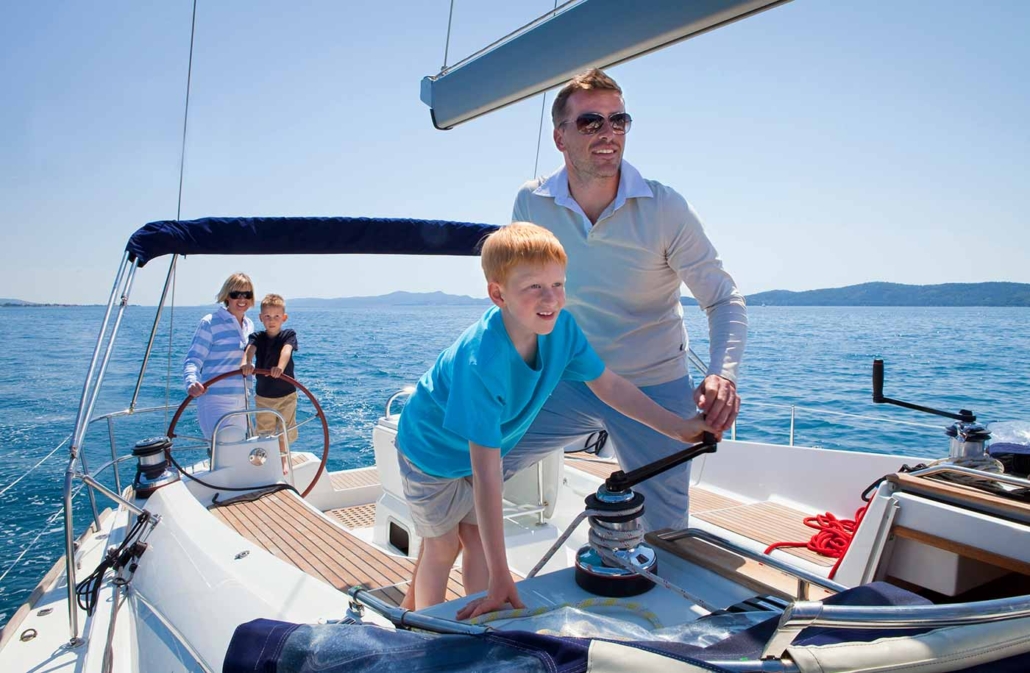Running a fridge on your boat can be a lifesaver for keeping food fresh and drinks cold, but it can also be a serious drain on your battery if not managed properly. Fortunately, with the right strategies and tools, you can minimise power usage and maximise efficiency. This guide provides practical tips to avoid battery drain while ensuring your boat fridge stays cool during long trips and off-grid adventures.
1. Choose a Power-Efficient Fridge
Not all fridges are created equal when it comes to power usage. Investing in a power-efficient refrigeration system, such as one with eutectic technology, can significantly reduce power usage and avoid battery drain. Eutectic refrigeration systems store cooling energy when power is abundant, gradually releasing it to keep your fridge cool without constant power.
Tip: Look for a fridge with low power consumption and efficient insulation designed for marine environments.
2. Optimise Your Power Source
Running a fridge on your boat requires reliable power management. Here are a few ways to optimise your setup:
- Solar Panels: Install solar panels to harness renewable energy while out on the water.
- Dual-Battery Systems: Use a dedicated battery for your fridge to avoid draining your primary engine battery.
- Generators: Consider a backup generator for consistent power during extended trips.
- Pro Tip: Pair your power source with a smart charge controller to avoid overcharging or undercharging your batteries.
3. Minimise Fridge Usage When Not Needed
Reducing the frequency of fridge use can save significant power:
- Pre-Cool Items: Chill food and drinks before placing them in the fridge to reduce the initial cooling load.
- Limit Opening the Door: Every time you open the fridge, warm air enters, requiring more power to maintain the temperature.
- Pack Efficiently: Keep your fridge organised to minimise the time spent with the door open.
4. Adjust Your Fridge Temperature
Set your fridge to the optimal temperature to balance cooling and energy use:
- Refrigerator Section: 3–5°C (37–41°F)
- Freezer Section: -15–-18°C (5–0°F)
Avoid overcooling your fridge, as it increases energy consumption unnecessarily.
5. Use Insulation Covers
Extra insulation can reduce the workload on your fridge:
- Fridge Covers: Use an insulating cover designed for marine fridges to reduce external heat exposure.
- Placement: Keep your fridge out of direct sunlight and away from heat sources like the engine or cooking areas.
6. Embrace Eutectic Refrigeration
If you’re serious about reducing power consumption on your boat, eutectic refrigeration is the ultimate solution to avoid battery drain. Ozefridge’s innovative EutectiCore technology stores cooling energy when power is available—such as from solar panels or generators—and releases it slowly to maintain fridge temperature without constant power.
- Why It Works: Eutectic plates act as thermal batteries, reducing reliance on your boat’s electrical system.
- Added Benefits: Longer battery life, reliable cooling during power outages, and energy savings over time.
7. Maintain Your Fridge Regularly
An inefficient fridge consumes more power. Keep yours running smoothly with these maintenance tips:
- Clean the Condenser Coils: Dust and debris can reduce cooling efficiency.
- Check the Door Seals: Ensure a tight seal to prevent cold air from escaping.
- Defrost Regularly: Ice buildup forces the fridge to work harder, using more energy.
8. Monitor Your Power Usage to Avoid Battery Drain
Understanding how much energy your fridge consumes helps you manage your battery effectively:
- Battery Monitors: Install a battery monitor to track power usage in real-time.
- Energy Audits: Regularly assess your power usage to identify inefficiencies.
9. Plan Your Energy Usage on Longer Trips
For extended voyages, energy planning is crucial:
- Stock Wisely: Only take what you need to reduce the fridge’s workload.
- Supplement with Ice: Use ice blocks or an insulated cooler for items that don’t need to stay in the fridge.
10. Why Ozefridge is the Perfect Partner for Boaters
At Ozefridge, we understand the unique challenges of running a fridge on a boat. That’s why our systems are designed to be energy-efficient, durable, and reliable for marine environments. Our advanced EutectiCore technology helps you save battery life without compromising on performance.
Key Benefits of Ozefridge for Boaters:
- Minimal battery drain with eutectic refrigeration technology.
- Built with durable materials like stainless steel and copper to withstand marine conditions.
- Expert after-sales support and readily available parts to keep you running smoothly.
Stay Cool, Stay Powered
By following these tips and investing in the right equipment, you can enjoy reliable refrigeration on your boat without worrying about battery drain. Whether you’re out for a day trip or a multi-day adventure, Ozefridge’s solutions are here to make your life easier.
Explore our range of power-efficient refrigeration systems today and take the first step toward worry-free cooling.
OzeFridge HQ
4423 Murray Valley Hwy
Yarroweyah VIC 3644
AUSTRALIA
ARC: 362517 ACN: 113 406 447 ABN: 51 113 406 447

 OzeFridge
OzeFridge